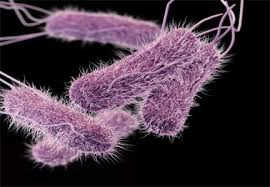Infection by a Rare Type of E. coli Across Canada
The Announcement
 The Public Health Agency of Canada (PHAC) reported that there have been 12 cases of a rare strain of E. coli O121. The illness onset dates range from November to December 2016, and include 9 males and 4 females, age of 9-79 years old.
The Public Health Agency of Canada (PHAC) reported that there have been 12 cases of a rare strain of E. coli O121. The illness onset dates range from November to December 2016, and include 9 males and 4 females, age of 9-79 years old.
The recovered E. coli with a matching genetic fingerprint reported in three provinces: British Columbia (4), Saskatchewan (4), and Newfoundland and Labrador (4). Four individuals have been hospitalized. These individuals have recovered or are recovering. The investigation into the source of the outbreak of the relatively rare E. coli O121 contamination is ongoing.
PHAC said that two of the most common ways to come in contact with E. coli are by improperly handling raw ground meat and by eating ground meat that is undercooked. Other common sources of E. coli incidents may also be contaminated raw fruits and vegetables, untreated water, unpasteurized milk and raw milk products and unpasteurized apple juice or cider.
Shiga toxin-producing Escherichia coli (STEC)
Most illnesses caused by Shiga toxin-producing Escherichia coli (STEC) have been attributed to E. coliserotype O157:H7, but non-O157 STEC infections are now increasingly recognized as public health problems worldwide.
Six Shiga toxin–producing Escherichia coli (STEC) serogroups, which include O26, O45, O103, O111, O121 and O145, are responsible for the majority of non–O157 STEC infections in the United States, representing growing public health concern. The O121:H19 serotype is being isolated more frequently from clinical specimens and has been implicated in one waterborne outbreak. It was among the top three most commonly reported non-O157 serovars to the National Enteric Surveillance Program in 2014.
Molecular characterization showed that the O121:H19 clone did not fall into any of the four classical EHEC and enteropathogenic E. coli groups but instead was closely related to two eae-negative STEC strains.
The number of non-O157 STEC isolates sent to CDC for serotyping has increased each year. The CDC estimates approximately 113,000 illnesses and 300 hospitalizations are caused by these six STEC serogroups annually in the United States, including severe complications such as hemolytic uremic syndrome (HUS). Infections associated with these six E. coli serogroups have been traced back to contaminated raw ground beef, lettuce and berries.
Other Contamination Due to STEC O121
Last summer the CDC reported a multistate outbreak of Shiga toxin-producing Escherichiacoli in flour. The associate strains were STEC O121 and O66. 63 people were infected in 24 states. 17 of the ill people were hospitalized, and one developed uremic syndrome.Epidemiologic, laboratory and trace back evidence indicated that the infection was caused by General Mills flour.
